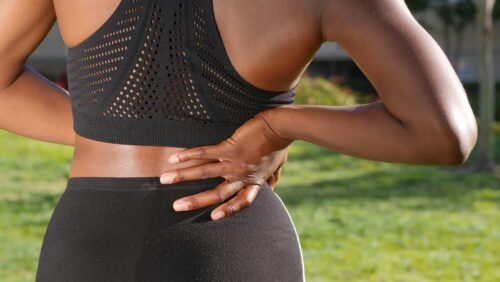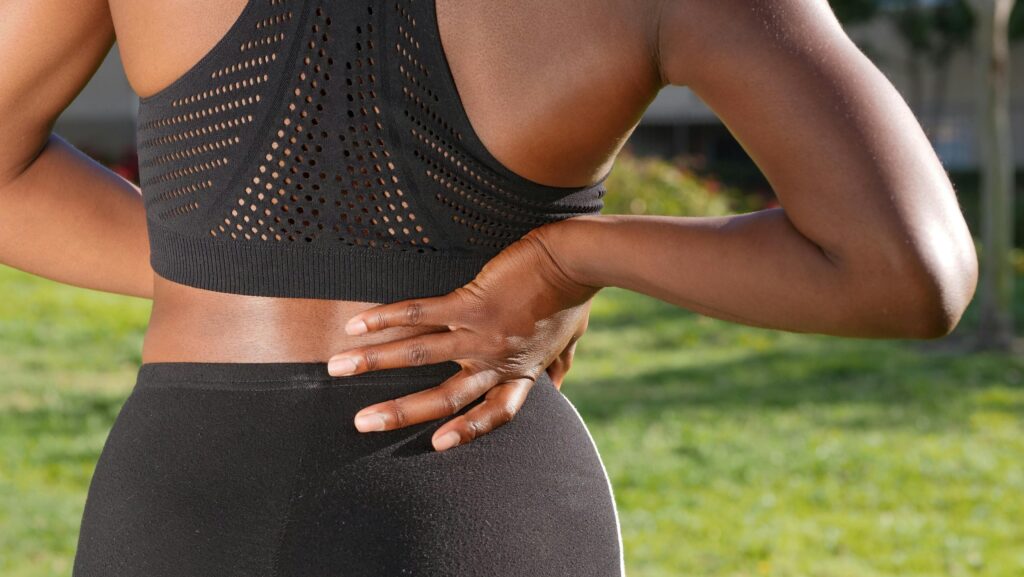
A common problem I often encounter as a physiotherapist is chronic or recurrent back pain, mainly caused by poor posture and a sedentary lifestyle. This often occurs in people who spend long hours sitting at a computer, with a combination of factors contributing to their symptoms:
Causes of back pain in this context
Poor sitting posture
○ A non-ergonomic chair or desk arrangement leads to a
hunched posture and overloading of the low back.
○ Prolonged sitting in an incorrect posture causes certain
muscle groups weaker (such as the core and glutes), while other muscles
becoming overloaded (such as the lower back and neck muscles)
Passive lifestyle
○ Prolonged sitting without sufficient exercise reduces blood flow and
takes care of stiff muscles and joints.
○ Lack of exercise leads to muscle atrophy, especially in the core muscles,
which reduces spinal stability.
○ Using a corset as to relieve, support the back. By
using a corset alone, you are actually going to reduce your core muscles
activate, which can cause atrophy. Rather, stay active!
Incorrect muscle tension during exercises
○ Patients often tighten the wrong muscles during exercises, which causes the
increases strain on the low back instead of relieving it.
○ For example: during core exercises they use their lower back instead of
of the abdominal muscles or forget to activate their glutes.
Treatment and prevention
- Ergonomics adjustments: Advice on chair choice, screen height and sitting position.
- Active breaks: Examples: Short movement exercises and stretch breaks during computer work, stand up every 30min, go fill your glass of water regularly etc
- Targeted exercise therapy: core stability, mobility and correct muscle tightening.
- Awareness and education: Teaching correct posture and movement techniques in everyday life.
- Adjusting stress-related factors
Underlying muscle problems
In addition to the previously mentioned causes of back pain, such as poor posture and a
sedentary lifestyle, underlying muscle problems may also play a role. A
specific cause is Piriformis syndrome, in which the piriformis muscle in the buttock
is excessively tense and puts pressure on the sciatic nerve. This can lead to pain in the buttock that radiates to the leg, as well as to the lower back.
In addition, overactive back muscles, such as the long back muscle (m. erector spinae), can contribute to lower back pain. When this muscle is overactive for long periods, it can sour and cause pain. This often results in worsening symptoms when standing still for long periods or sitting upright.
Another factor is a tense pelvic floor, which affects the position of the back and can lead to pain and fatigue symptoms in the low back. Causes of this range from pregnancy to stress symptoms.
Finally, weakened glutes, particularly the gluteus medius, can contribute to
chronic low back pain. Research shows that people with back pain often have less muscle strength and more soreness in this muscle. Strengthening the gluteus medius can therefore be effective in treating back pain.
It is essential to carry out a thorough evaluation for back pain to identify and target such underlying muscle problems.
Golden tip:
Maintain your back, you only have one! Be active and keep the back pain away. It takes time to make your back stronger and healthier, so don't give up after a few days.
Consistent practice and an active attitude are the key to success!
Source
Annaswamy TM, Cunniff KJ, Kroll M, Yap L, Hasley M, Lin CK, Petrasic J. Lumbar Bracing for Chronic Low Back Pain: A Randomised Controlled Trial. Am J Phys Med Rehabil. 2021 Aug 1;100(8):742-749. doi: 10.1097/PHM.0000000000001743. PMID: 33789322.
Hicks, B. L., Lam, J. C., & Varacallo, M. (2017). Piriformis syndrome.
bsl-Movement with a reluctant back, compensation patterns
Greenbell medical clinic- low back pain

